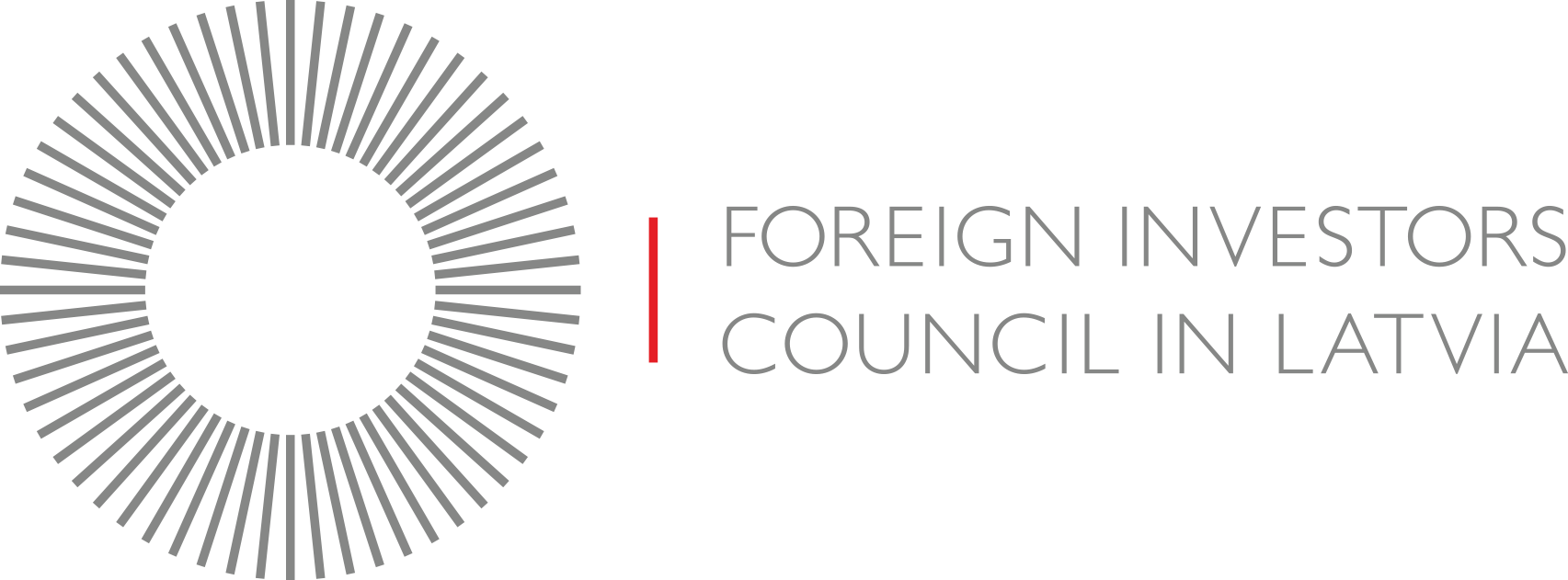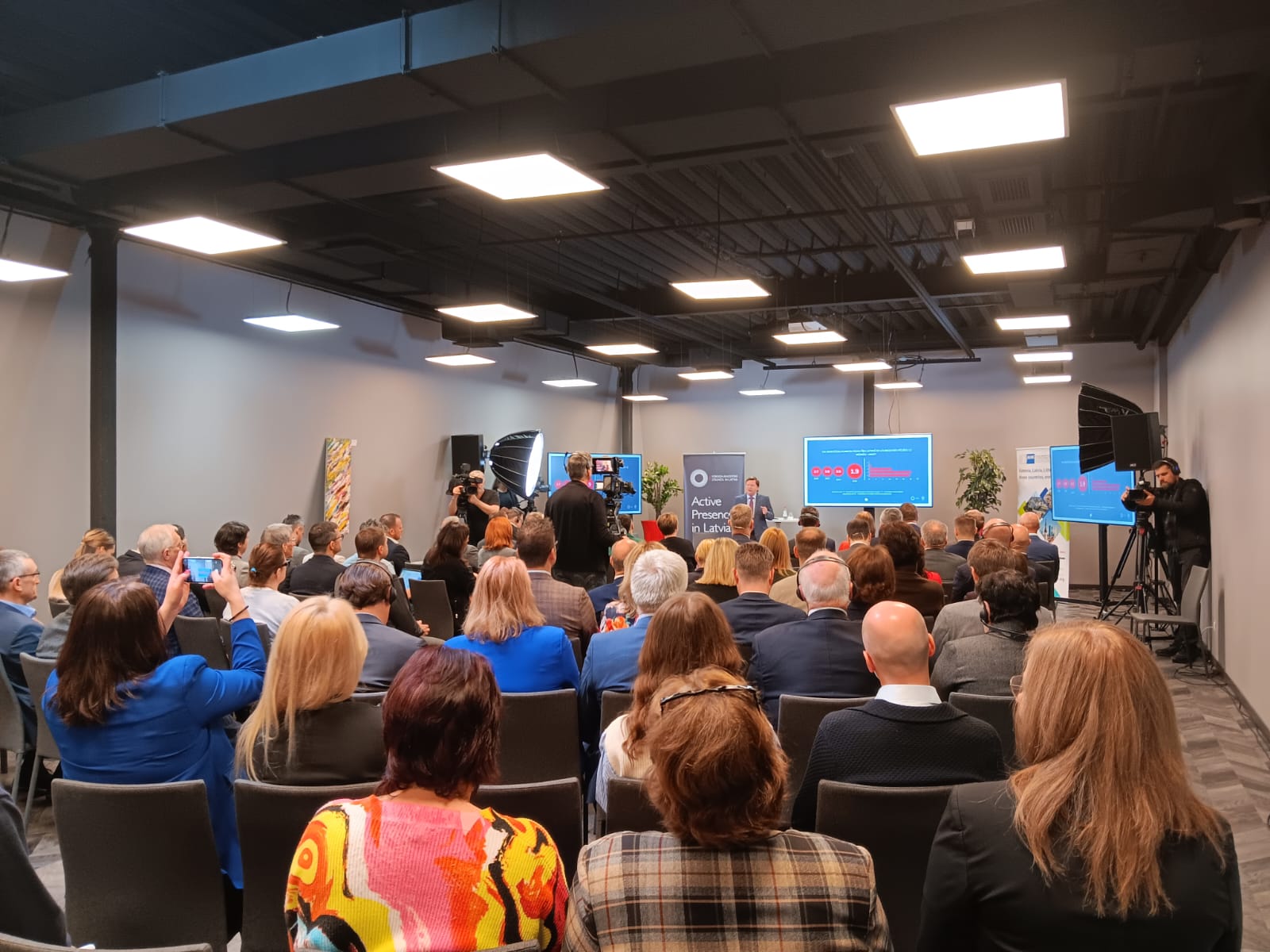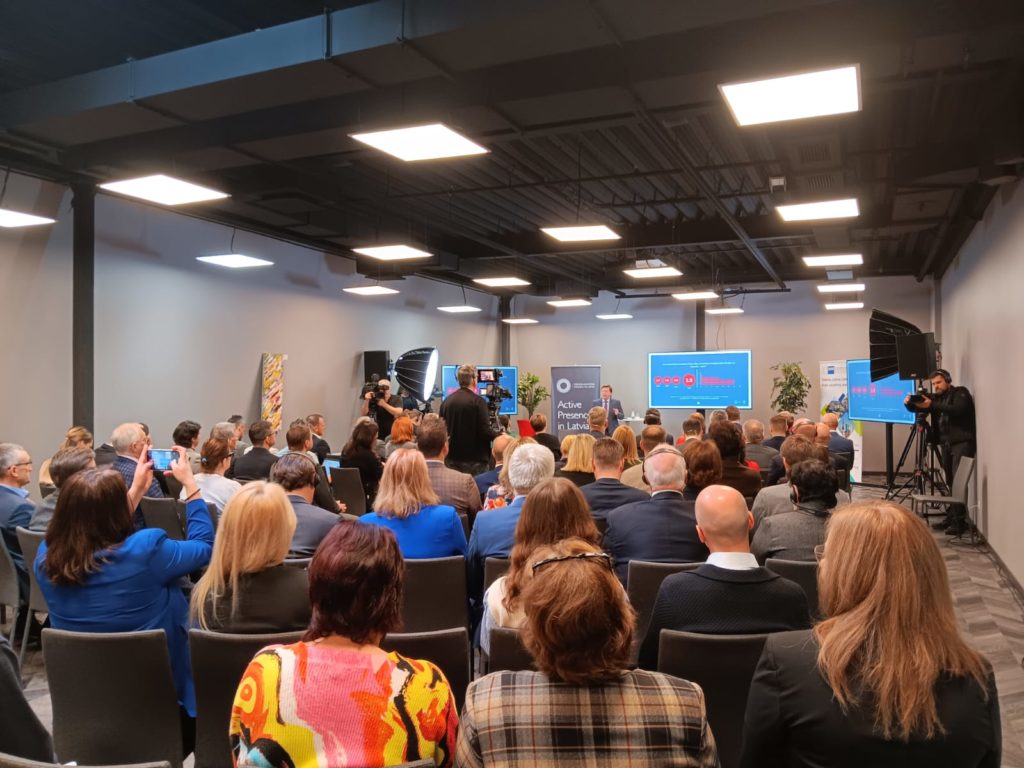On April 26, a discussion organized by the Foreign Investors’ Council in Latvia (FICIL) and the German-Baltic Chamber of Commerce (AHK) titled “Investment Climate in Latvia: Solutions for Attracting Investment” took place. Policymakers and foreign investors discussed crucial topics for attracting investment, such as the availability of labour, the role of state and municipal-owned enterprises in national development, and administrative burdens. The high administrative burden was discussed extensively and linked to the slow digitalisation of public administration and high bureaucracy in municipalities.
“While this year’s focus was largely on the administrative burden issues for investors, most investors expect a swift action from policymakers, calling on them to move from words to action to ensure the matters we are currently discussing also make it onto their agenda,” emphasised Zlata Elksniņa-Zaščirinska, Chairman of the FICIL Board, during the event opening.
AHK, presenting a survey of the business climate in Eastern and Central Europe, continued to emphasise that Latvia’s investment climate has deteriorated – in an assessment of the investment attractiveness in 16 CEE countries, Latvia ranks 6th, while Estonia and Lithuania rank in the first two places. “The main challenges faced by investors are the lack of a skilled workforce, the poor performance of policymakers, and the tax burden, especially the administrative burden in tax administration. We see that Lithuania and Estonia have developed a very clear profile for investors, which Latvia must also do,” said Florian Schröder, Executive Director of AHK.
The administrative burden in the construction sector was another widely discussed topic. Romāns Astahovs, representative of the real estate development company Vastint stated: “We had to coordinate our construction project with 24 institutions, from the day we chose the architect until the day we celebrated the topping-out ceremony, 6.5 years had passed, and it will have taken more than 7 years until the project is fully completed.” Policymakers confirmed that a plan to reduce bureaucracy in the construction sector has been developed and is to be implemented. Investors also discussed the role of municipalities in reducing bureaucracy, inquired about Riga’s plans to make the city more attractive to investors, and demanded closer cooperation between municipalities.
During the discussion, entrepreneurs also highlighted the favouritism towards the state-owned enterprises in public procurement, which negatively affects fair competition. Likewise, investors requested adherence to the principles of good governance in the state-owned companies. During the discussion, the Ministers of Economy and Transport confirmed that both ministries will address the problem of favouritism and governance of the state-owned companies.
Nearing the end, the guests discussed a human capital strategy for improving labour force availability. Investors suggested improving the education system, creating a “smart” immigration strategy, and enhancing the Human Capital Development Plan.
Policymakers and investors positively assessed the progress made in reducing the shadow economy, but pointed out that there is still a sense of impunity for tax evaders in the country and called for strengthening the capacity and tools of the State Revenue Service to reduce shadow economy levels, inquiring about potential incentives that honest taxpayers could receive.
The Chairman of the Riga City Council, the Auditor General, and the Ministers of Economy, Finance, and Transport acknowledged that reducing the administrative burden on entrepreneurs is necessary to promote the overall investment climate and expressed confidence that by addressing issues faced by current investors, Latvia will also be able to attract new investment.
The discussion “Investment Climate in Latvia: Solutions for Attracting Investment” took place on April 26, presenting results of the “FICIL Sentiment Index 2023” study and the “Business Climate Survey 2024” by the German-Baltic Chamber of Commerce. The video recording of the discussion is available: https://www.ficil.lv/media/ficil-sentiment-index-2023/
The FICIL Sentiment Index was first launched in 2015 by FICIL in cooperation with SSE Riga. The key aim of the Index is to foster evidence-based policy decisions and promote a favourable investment climate in Latvia. In 2024, we launched the ninth consecutive report, which is based on a survey: mini case studies of foreign investors.
AHK conducts business climate surveys together with 16 other Central and Eastern European countries since 2006. This year, 1535 entrepreneurs from this region participated in the survey, 76 of whom were from Latvia.



